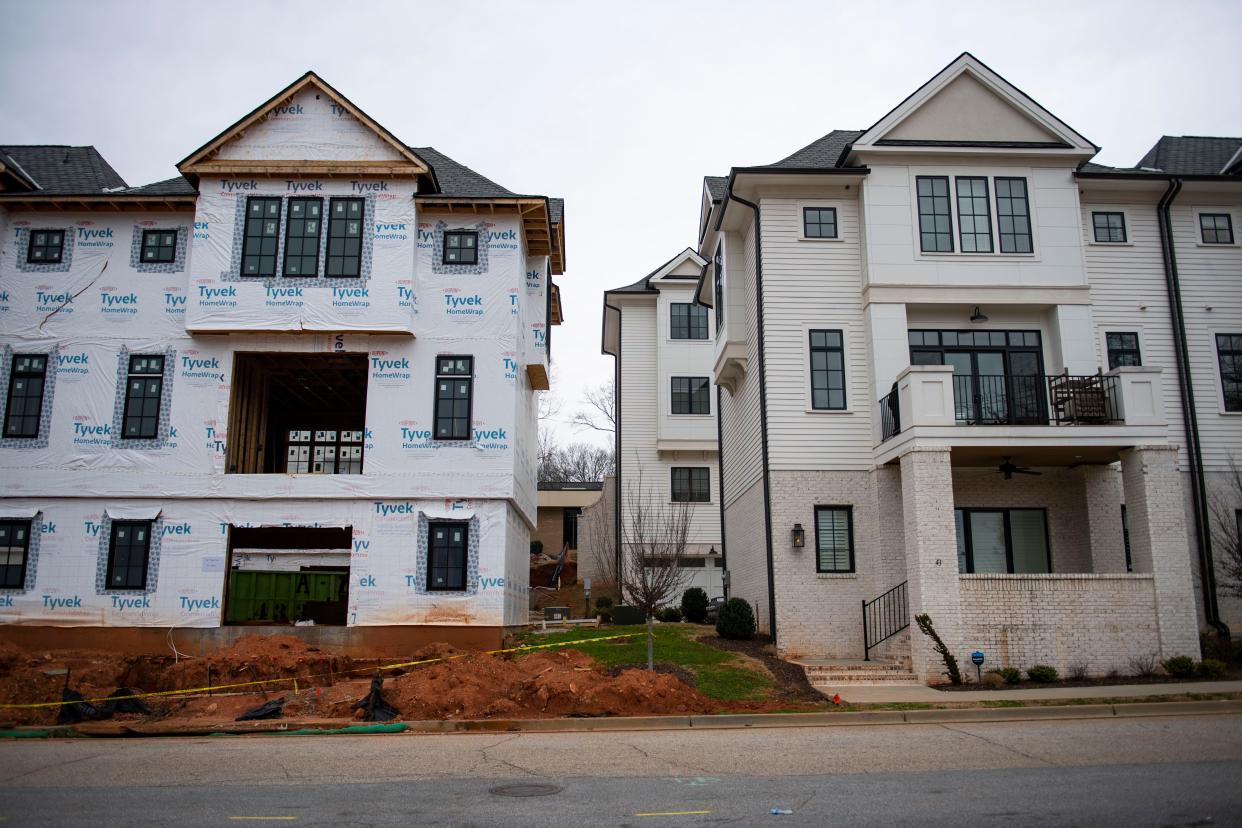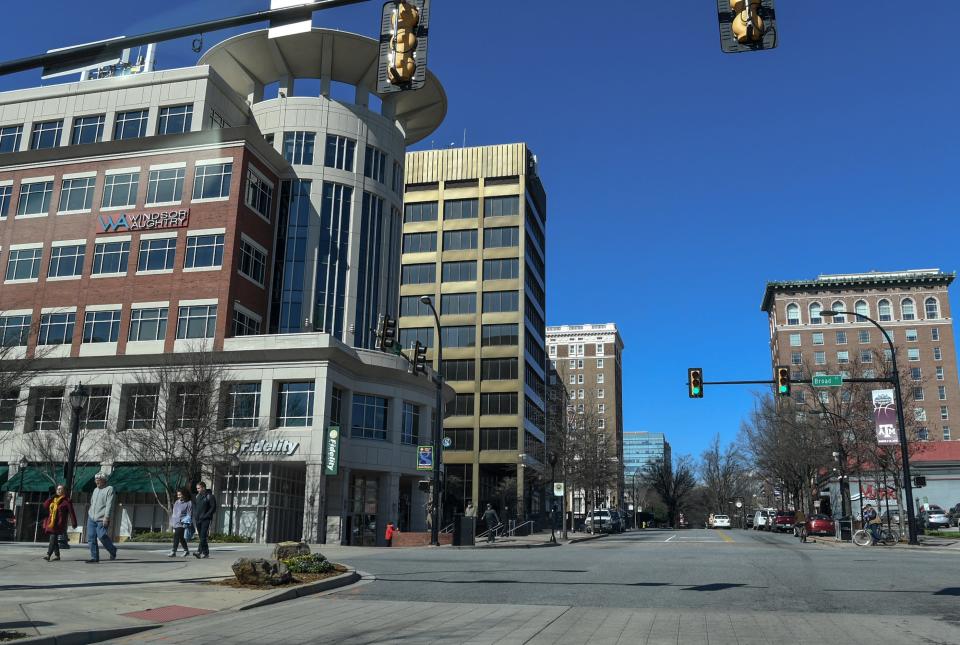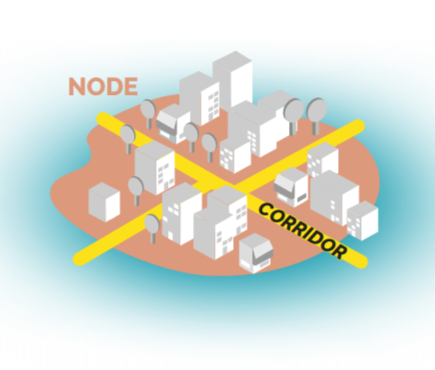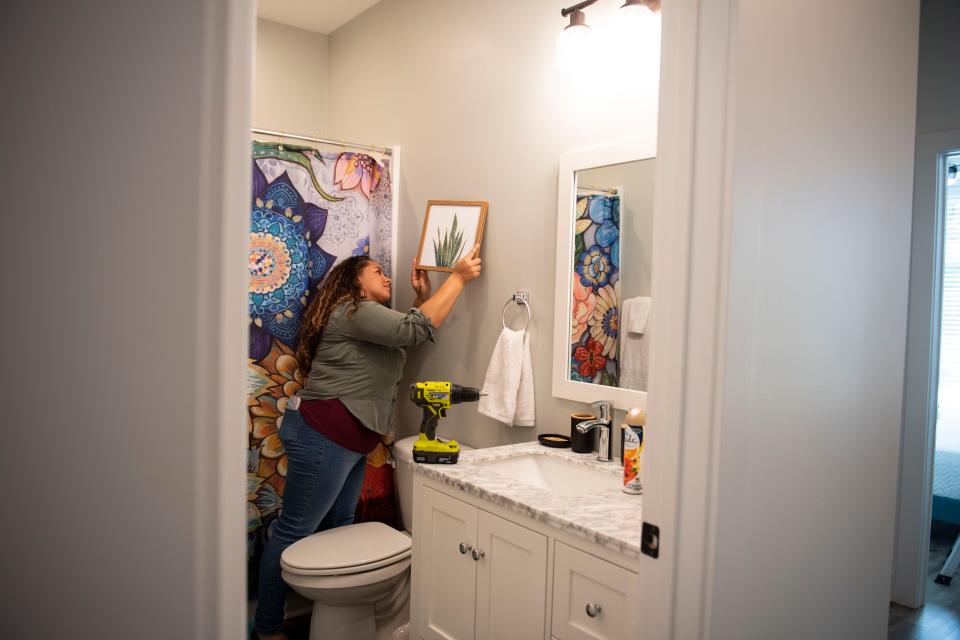How Greenville grows will change with new development code. Here's what to know.

Greenville's growth isn't slowing down.
The city is issuing a record 7,000 building permits per year, assistant city manager Shannon Lavrin said. Commercial inspections, another key indicator of growth, are also on the rise. Greenville conducted 2,500 last year.
But how Greenville grows will soon change through the city's new development code. The code establishes zoning rules and laws that dictate construction and building projects.
Like many growing cities, Greenville faces challenges that come with new development. The area needs roughly 20,000 more units of low-cost housing, according to a coalition of housing groups in the city and county.
The city's new code will have a more intense, urban feel with higher-level design standards throughout the city, not just downtown, according to the latest draft.
The draft code emphasizes better environmental stewardship and "a bottom line that's good for developers and the community." It also seeks to formalize affordable housing tools, consultants told City Council at their annual retreat January 27.
"This is the first draft of the code," Lavrin said in a press release. "We are looking forward to working with the community to receive feedback and suggestions for improvement."

Here's what to know about the code:
Who's drafting the code and when will it take effect?
The city hired consultants czbLLC, the same firm that helped the city with its comprehensive plan and affordable housing plan, to draft the code. Since 2021, consultants have worked with city staff and officials and collected feedback from developers, builders, business owners and residents in public meetings.
Planning Commission will review the draft and hold public hearings Feb. 28 and March 1 before they deliberate March 16. The code will then go to City Council for approval in two readings.
Existing businesses won't have to make changes to be in compliance with the new code.
The city is still making changes to the draft and accepting feedback. To comment on the code, email devcode@publicinput.com or call or text 864-232-2273.

How will Greenville become more urban?
Urban doesn't mean "more apartment buildings." It includes a blend of building types and uses that help transition downtown into more residential neighborhoods, according to consultants.
New development will mostly go along corridors and in small, urban centers, or "nodes." Existing residential neighborhoods, most of them made up of single-family homes, won't see much change.
The city's goal is to preserve open space between nodes, all concepts introduced in its GVL2040 comprehensive plan.
As Greenville grows, the new code calls for the city to develop around major intersections that will have four- to six-story buildings and feel like "miniature versions of downtown," according to the city's website.
GVL Draft Zoning by Macon Atkinson on Scribd
How does the code address Greenville's need for affordable housing and open space?
The new code will have bonuses for open space, height and density in zoned areas. The incentives apply to a quarter of the city.
Secondary residential dwelling units, like carriage houses and garage apartments, will also be allowed for the first time in areas zoned for single-family residential in efforts to improve housing affordability.
The Cost of Unity Unity Park was Greenville's biggest price tag. Its cost might be Black neighborhoods, too.
The dwelling unit bonus applies in:
Neighborhood B (RN-B)
Neighborhood Flex B (RNX-B)
Neighborhood C (RN-C)
Neighborhood Flex C (RNX-C)
The height bonus applies in:
Community 2 (RC-2)
Community 3 (RC-3)
Community 5 (RC-5)
Mixed Use 2 (MX-2)
Mixed Use 3 (MX-3)
Mixed Use 5 (MX-5)
Shopfront 2 (MXS-2)
Shopfront 3 (MXS-3)
Shopfront 5 (MXS-5)
To get a housing bonus, 15% of all residential units in a project must be affordable for households that earn 80% or less of the city's median household income. That number is $57,253 according to 2021 American Community Survey estimates from the U.S. Census Bureau.
To get an open space bonus, developers must pay a one-time fee of $5,000 per new residential unit, which the city will use to purchase land for open space.
The city and consultants are also exploring housing voucher incentives that could be included in the code to reach renters who earn 30% or less of Greenville's area median income.

Does the new code include stormwater regulation?
The new code has updated regulations to control how much of the city's surface soaks up stormwater and how it's handled.
On a practical level, the city uses taxpayer-funded infrastructure to channel stormwater and treat it in facilities to reduce pollution. On a policy level, the city's mandate determines how much of an impervious area, like pavement or rooftops, is allowed on a developed property.
Stormwater either soaks into soil or goes into waterways or puddles on top of impervious surfaces like concrete. As the city grows, there are more impervious surfaces.
Greenville's stormwater flooding:Despite development moratorium compromise, issues persist
The new code strengthens the city's stormwater regulations around residential areas and variances, which are when developers ask to deviate from city code.
The stakes are especially high for historically Black neighborhoods, where basic infrastructure - like sidewalks, curbs and gutters- is often missing to the detriment of residents. The city has plans to improve infrastructure in those areas.
How is Greenville's zoning changing?
The new code will include more zoning classifications and expands single-family zoning districts. The code will also include specific breakdowns of district standards, including site and building information.
Short term rental regulation is also included. Short-term rentals will be restricted to downtown or commercial districts.
Macon Atkinson is the city watchdog reporter for The Greenville News. She's powered by long runs and strong coffee. Follow her on Twitter @maconatkinson.
This article originally appeared on Greenville News: Greenville SC to ban Airbnb in residential areas

